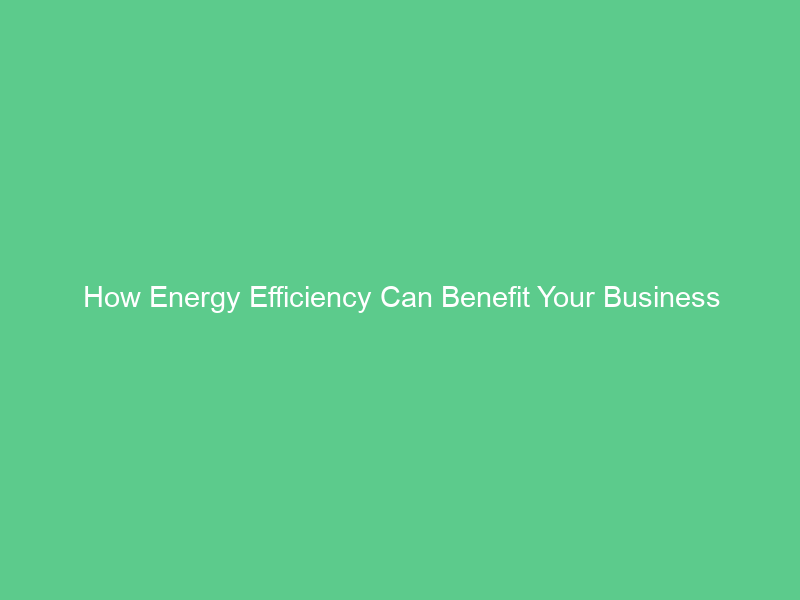Energy efficiency is a straightforward approach to cutting your business’s energy usage and costs. This can be accomplished with simple measures such as installing energy-saving appliances and lighting from ENERGY STAR.
Reduce carbon emissions to benefit both the environment and human health, for instance: one report indicated that cutting nationwide energy consumption by 15 percent would significantly reduce fine particulate pollution levels, saving six lives daily while averting $20 billion in medical costs.
It’s good for your wallet
Energy efficiency refers to using less to achieve more, with reduced utility bills for households and businesses while stretching our energy dollars further. Not just LED lightbulbs; also home insulation and building retrofits; hybrid electric vehicles equipped with regenerative braking technology to recapture wasted energy, hybrid electric vehicle batteries that save on power usage during operation, smart grids to optimize energy distribution, etc. are part of energy efficiency initiatives.
As well as savings, efficiency helps lower our ecological footprint by reducing greenhouse gas emissions and air pollution and conserving natural resources. Efficiency-minded measures may offer long-term financial security to many communities – especially low-income communities of color or families facing inequitable energy burdens where an excessive portion of household income goes toward utilities.
As an example, when upgrading to more energy efficient furnaces or appliances, many states offer rebates and tax credits to make the upfront costs more manageable for these communities. Strong state efficiency programs can ensure everyone can take advantage of energy efficiency.
It’s good for the environment
Energy efficiency helps reduce greenhouse gas emissions and fossil fuel reliance that contributes to climate change, while simultaneously decreasing air and water pollution associated with energy production and consumption.
Efficient appliances and buildings help the economy thrive without expanding infrastructure or taxing natural resources, while at the same time helping lower-income households avoid energy poverty.
Energy efficient appliances and buildings are better equipped to incorporate renewable energies into our energy systems, further decreasing fossil fuel usage. This is particularly critical given that primary sources are increasingly susceptible to supply interruptions or price surges.
Energy saving means power plants don’t have to produce as much electricity, thereby decreasing carbon dioxide levels in the air and helping curb climate change. This is particularly advantageous given that most power plants burn coal or fossil fuels that contribute to global warming.
It’s good for your health
Energy efficiency works are often seen as an economical means to lower energy bills and curb carbon emissions, yet their benefits go much deeper than this.
Access to affordable energy efficient homes could help alleviate fuel poverty, which has been linked to respiratory and cardiovascular conditions. Furthermore, it could enable households to live in more comfortable living environments which have been shown to enhance mental wellbeing.
According to a joint report by ACEEE and Physicians for Social Responsibility (PSR), energy efficiency measures could save six American lives every day and avoid $20 billion annually in health care costs. To achieve these savings, electricity consumption nationwide would need only to decrease by 15% – this can be accomplished through replacing older appliances with energy-saving ones and using alternate forms of power such as solar; even cars could become more efficient by adding technologies like regenerative braking that recaptures energy lost during stops or idle times.
It’s good for your business
Energy efficiency can do more than help your company’s bottom line: it can also enhance its reputation, attract new customers and enhance brand image. Many organizations today are taking conscious steps to become more environmentally responsible – efforts which they’ve found are yielding fruitful returns.
Businesses adopting more sustainable practices may take advantage of state and federal tax incentives to offset upfront costs related to energy upgrades while recovering some of their investment costs.
An emphasis on energy efficiency can have an immediate effect on business productivity. Studies have demonstrated that employees working in more energy-efficient workplaces tend to be more productive. Furthermore, sustainability initiatives may increase resale values of commercial buildings making them more desirable to potential buyers.

